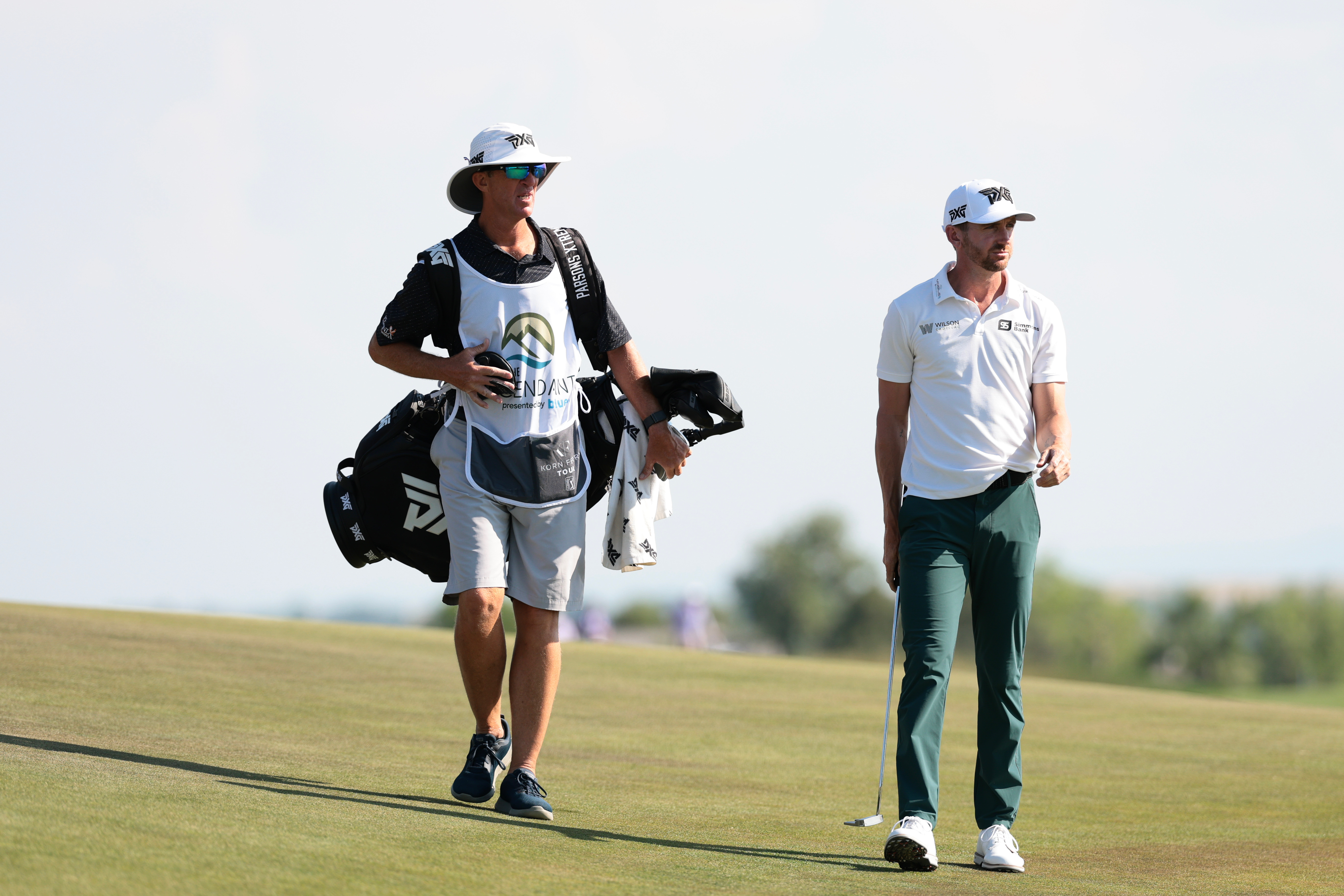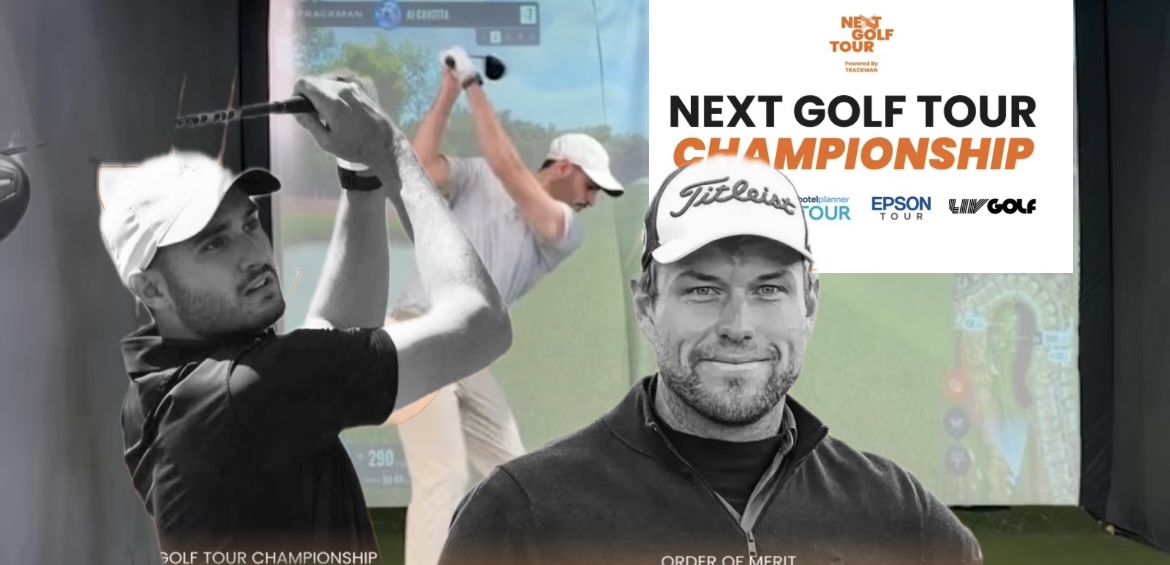Having competed in some strange places on tours all over the world, I assumed I had warmed up in almost every place imaginable. One place where I’ve never warmed up: jail.
The tactics and reputation of the Louisville Metropolitan Police Department have been under intense scrutiny since the 2020 killing of Breonna Taylor. Newly elected Mayor Craig Greenberg pledged to make changes that would result in the “most trained, trusted and transparent police department in America.” Some of the programs the department was asked to implement were supposed to bring police and community members together to rebuild trust and create better policy. Police are also trained on the history of policing going back to the Civil Right era.
Scottie Scheffler warmed up for the second round of the PGA Championship last week in a jail cell, and his arrest has put the department back in the spotlight. As the Scheffler incident reopens conversations about policing, it’s worth recalling how young Cassius Clay got his start in boxing.
Joe Martin was a Louisville patrolman and boxing trainer who was approached by a distraught, teary 12-year-old Cassius Clay after the kid’s new red Schwinn bicycle was stolen. Cassius ran into Martin’s gym on a rainy evening after being told a cop was there. The prized bike was a Christmas gift from Cassius’s father and retailed for $60 – about $500 today.
As Martin listened intently and began filling out a police report, Cassius angrily declared he would find the kid who had stolen his bike and give him a good whooping. Martin had been instrumental in integrating boxing gyms across Louisville, and as 10 boxers – both black and white – trained in front of Cassius, the kid who would later become the legendary Muhammad Ali grew excited. Martin told Cassius he better learn to fight before he went looking for one and gave him an application to the gym.
“Destiny is a function of chance and choice,” Jonathan Eig wrote in the biography Ali: A Life. “Chance delivered young Cassius Clay to Joe Martin’s boxing gym, but choice would bring him back.”
Cassius returned to Martin’s gym again and again, and Martin would teach him footwork, how to protect himself and how to throw a right cross. Some of the boxers from the gym would routinely fight on television in an amateur boxing league and Cassius liked the idea of competing in the spotlight. When Cassius was ready, Martin gave him a shot on Tomorrow’s Champions, a weekly televised boxing show that he produced. By split decision, Cassius won the fight against Ronnie O’Keefe, a White boy around his age.
''All of a sudden I had a new life,” Ali wrote in his autobiography, The Greatest: My Own Story.
Clay went on to win six Kentucky Golden Glove titles, two National Amateur titles and the heavyweight gold medal at the 1960 Summer Olympics in Rome. Martin remained a cop through all those victories and served on the Louisville police force for 34 years. When Clay returned home, despite having represented his country, despite being the best in the world at his craft, there were still lunch counters that wouldn’t serve him. Cassius Clay would become “the greatest of all time,” all because of a random interaction with a city cop.
On Thursday, Louisville city officials were supposed to provide more information about the arrest of Scottie Scheffler, the top-ranked male golfer in the world.
Greenberg and Police Chief Jacquelyn Gwinn-Villaroel stuck to talking points about the importance of letting the courts proceed with the matter, and said Detective Bryan Gillis, who did not turn on his body camera during the incident, had been disciplined for not following department policy. Gwinn-Villaroel called it “corrective policy.”
Video from a camera positioned across the road from the players’ entrance to Valhalla shows Scheffler’s courtesy car turning into the entrance slowly, while Gillis appears to be jogging after the car and banging on the window. Although the car initially emerges from behind a bus that is obscuring anything that might have happened earlier, there’s no sign of an interaction resembling the second-degree assault of an officer and reckless driving that Gillis describes in the police report. Greenberg said the video would “speak for itself,” and if he meant convincing the public that an unnecessary arrest had been made on Friday morning of the PGA Championship, he is correct.
In 1967, Ali was convicted of draft evasion after he refused to go to Vietnam on religious grounds. Even after he was stripped of his heavyweight title and sentenced to five years in prison, he remained steadfast. “I ain’t got no quarrel with the Viet Cong,” Ali famously said. He appealed his conviction and stayed out of prison, and the Supreme Court overturned the ruling in 1971. Later in life, Ali brought together people with significant ideological differences.
Basketball legend Bill Russell met with Ali before his conviction. “He has something I have never been able to attain and something very few people I know possess," Russell said after the meeting. “He has an absolute and sincere faith. I’m not worried about Muhammad Ali. He is better equipped than anyone I know to withstand the trials in store for him. What I’m worried about is the rest of us.”
It’s a sentiment that could also describe Scheffler, a man of faith and by all accounts, a very decent person – the kind of guy you want your son to be like and your daughter to date.
Back when Martin taught Cassius how to fight, and later when Ali was facing the possibility of hard prison time, America was violently divided along racial lines. Today, America is intensely divided along party lines. Scheffler praised police, calling the incident a misunderstanding, and took pictures with LMPD officers at the course on the afternoon of his arrest. You can’t imagine anyone else handling the situation with as much grace and humility. But Scheffler’s arrest has brought people with diametrically opposing views on policing together to question the actions of one detective and the subsequent handling of the case by the LMPD.
At the same time, you have to wonder how many others, without Scheffler’s fame, profile and demeanor, have experienced similar encounters and received similar treatment. No doubt, this is on the mind of city officials as they determine the best path forward for the case, which has again placed apparent overzealous policing in the spotlight.
But come back to young Cassius and imagine if Joe Martin had brushed him off or not believed him. Imagine if a teary, angry 12-year-old had been sent away to roam the streets looking for his prized bicycle and its thief. What would the life of Cassius Clay have looked like? Would we have ever known of Muhammed Ali?
Scottie Scheffler and Muhammad Ali are entirely different cases from different eras, but they share a level of rarified skills and faith worth considering. We’re living in a tense time, a period that feels on the verge of combusting. This era needs more role models like Joe Martin: observant servants who can take a breath and be curious; level-headed people who can ask the right questions without being immediately triggered. This could be the difference between Scheffler winning the grand slam or ending up in the slammer – or a young kid lashing out in anger over a stolen bike and instead channeling those feelings toward his or her potential.
Cassius Clay, Joe Martin and Scottie Scheffler serve as reminders that we can be better and that we must be.
Lorem ipsum dolor sit amet, consectetur adipiscing elit. Suspendisse varius enim in eros elementum tristique. Duis cursus, mi quis viverra ornare, eros dolor interdum nulla, ut commodo diam libero vitae erat. Aenean faucibus nibh et justo cursus id rutrum lorem imperdiet. Nunc ut sem vitae risus tristique posuere.





.jpg)

0 Comments